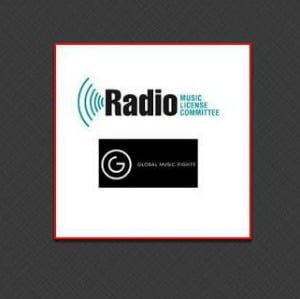
The latest GMR court filing states that radio stations represented by RMLC do not want real competition concerning the music they play, nor do they want to pay for the value GMR and its writers bring to the table. And GMR has asked the court to dismiss the RMLC’s lawsuit for three reasons.
The GMR motion states three reasons for dismissing the RMLC complaint:
#1) GMR says the court lacks personal jurisdiction over GMR.
#2) The Eastern District of Pennsylvania is an improper forum in which to adjudicate the dispute.
#3) RMLC’s Complaint fails to state a claim upon which relief can be granted.
GMR says the RMLC is seeking to bully GMR into accepting contractual terms and licensing procedures similar to those of ASCAP, BMI, and SESAC. “GMR resisted RMLC’s blatantly anticompetitive maneuver. But rather than negotiate, RMLC sued. Without a hint of irony, the industry giant that represents 90% of the country’s terrestrial radio station revenue called the tiny startup company with just seventy-three writers a “monopolist.” But RMLC’s factual allegations about GMR actually describe an increase in competition—competition among PROs and competition between radio stations—not competitive harm. RMLC’s real complaint is that radio stations might have to compete for GMR’s business in the previously staid PRO market.
The GMR filing goes on to say that under the guise of this “antitrust” lawsuit, RMLC asks the court to take the radical step of imposing on GMR a compulsory license scheme with a “rate court” to decide license prices. “That regime would stifle competition, neutralize GMR as a competitor in the music licensing market, rewrite the Copyright Act, and usurp the legislative prerogative of Congress, since the Copyright Act expressly does not require a compulsory license or rate for public performance licenses of compositions.”






GMR is a monopoly because it controls the songs it represents. Radio stations can’t go to another PRO to license those songs. Even if GMR has only half credit on a song, that song must be licensed. That’s the way the law was written. Last year, the Justice Department attempted to allow partial licensing, but that concept was struck down in court. So now, even if a radio station chooses not to play GMR songs, it could be sued if it plays an ASCAP song with a GMR co-writer. There really is no way out of this. Consent decrees must be applied fairly to all PROs, including GMR.
BigA–
You seem knowledgeable on this issue.
Allow a question, please:
Why are ASCAP and BMI not opposing another house horning in on their turf?
What do you want them to do? The law doesn’t give anyone exclusivity. There isn’t much McDonalds can do if a Burger King opens across the street. Certainly there is competition among the PROs to sign songwriters. But there’s not much ASCAP and BMI can do about it.
ASCAP has over 600, 000 composers. These bandits 73–from bills I’ve seen they want close to 20% per station of what ASCAP bills. Loud-mouthed crooks and bloodsuckers. They must be stopped. Best solution is one independent body that collects rights fees for all composers then distributes on a fair allocation based on play lists.
Legally, the claims in their motion to dismiss are nonsense.